By Shafee Ahmed Ko, TwoCircles.net,
Chennai: This is the fear that intellectuals of minority languages in the predominant Tamil speaking state have today, thanks to the M Karunanidhi government’s Samacheer Kalvi (Equitable System of Education) policy that will be in force from the academic year 2010-2011. It is certain that due to the policy, based on two-language system (Tamil and English), the state will not allow, after 2015, Hindi, Urdu, Arabic, Persian, Telugu, Malayalam and Kannada in public examinations.
The object of the government is to do away with all the languages except Tamil and English from 2016. The text books will contain syllabi extolling the Tamil scholars and Periyar’s (Most of the DMK people are atheist except MGR and Jayalalithaa) teachings.
Several Urdu language intellectuals have shared their concern with TwoCircles.net. But let’s first have a look at the present language situation in the state and the present DMK government’s views about Samacheer Kalvi.

Tamil rules the roost
Tamil Nadu government gives a great deal of importance to Tamil language. Those who study Tamil as main language obtain government scholarships and get great job opportunities. Tamil leaders such as E.V. Ramasamy and Annadurai, Karunanidhi, all strong advocates of atheism, no doubt brought a renaissance in Tamil language. Their prolific writings were quite popular. Theatres and films helped them to bring alarming progress and great craze for the Tamil language. Within the span of fifty years there was a sea-change in the language both in spoken and written. All signboards bear Tamil language and all government buses carry the Tamil poet Valluar’s couplets. Being a very powerful party the ruling DMK is slowly introducing two-language policy (only Tamil and English) in the educational curriculum, which, however, is not quite apparent at the moment.
Tamils in India
Most of Indian Tamils live in the state of Tamil Nadu. Tamils are the majority in the union territory of Puducherry, a former French colony, borders Tamil Nadu. Tamils account for at least one-sixth of the population in Andaman and Nicobar Islands also.
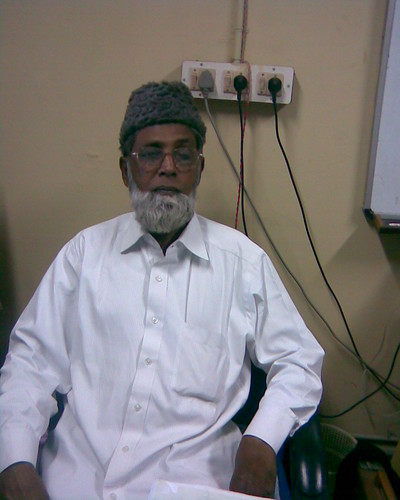
There are also Tamil communities in other parts of India. Most of them have emerged fairly recently, dating to the colonial and post-colonial periods, but some – particularly the Hebbar and Mandyam Tamils of southern Karnataka (2.9 million), Pune, Maharashtra (1.4 million), Andhra Pradesh (1.2 million), Palakkad in Kerala (0.6 million), and Delhi (0.1 million) – date back to at least the medieval period.
Tamil Nadu population
Hindus: 88.34%
Christians: 6.08%
Muslims: 5.57%
Others: 0.26%
Population: Tamil speaking 50%
Population: Urdu, Telugu, Malayalam, Kannada speaking (Linguistic minorities) 50 %( Approximately)
(Deputy Chief Minister M.K. Stalin admits it)
Govt’s views on Samacheer Kalvi (Equitable System of Education)
Equitable standard school education does not mean imposition of the syllabus of one stream on others, Chief Minister M. Karunanidhi clarified last week. A common syllabus would be prepared, incorporating the best of all the streams. An analysis of the syllabi of the streams had revealed that there was not much difference, Mr. Karunanidhi said in a statement.
At present, the State has four streams – State Board, Matriculation, Anglo-Indian and Oriental. Last month, the Cabinet decided to adopt the system of equitable standard school education. The Chief Minister said once the fresh syllabus was prepared, its copies would be circulated to representatives of all the streams for comments. This would be debated at panchayat and district levels before finalization.
In a transparent manner, decisions would be taken on the syllabus and text books. As announced by the government, apart from Tamil, steps would be taken to continue with the present practice of permitting other languages as a medium of instruction.
Minority language intellectuals
Despite clarification from the chief minister, intellectuals of minority languages in the state have expressed their concerns.
P.K. Shabbir Ahmed of Organisation of Muslim Educational Institutions and Association of Tamil Nadu (OMIET): “There is a slow poisoning in the Tamil Nadu Educational System to negate the minority languages such as Urdu, Telugu, Malayalam, and Kannada. The Tamil Nadu was well crafty in introducing in the two-language formula 1.Tamil and 2.English as examination languages and 3.Subjects such as Mathematics and Sciences. The Act known as “Tamil Nadu Tamil Learning Act 2006” has been in practice with Tamil and English as compulsory languages and minority languages such as Urdu, Arabic, Persian, Telugu, Malayalam, and Kannada will be totally extinct in the year 2015.
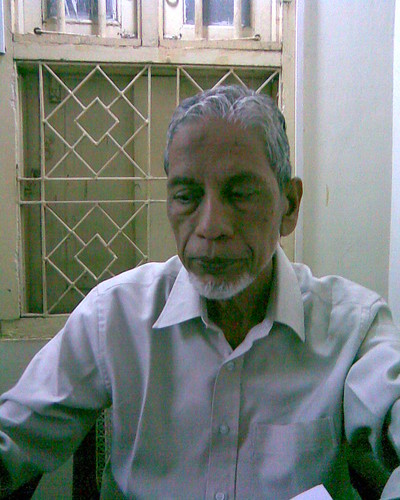
P.K.Shabbir Ahmed (OMIET)
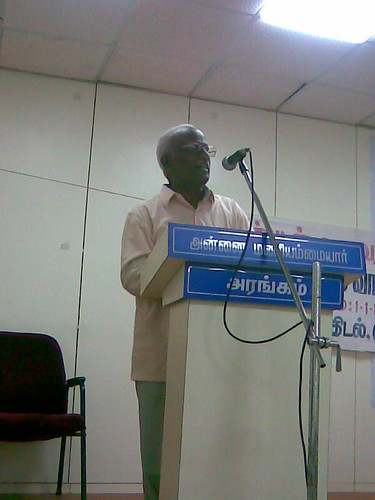
Balakrishnan M.A.,M.Ed
When TCN asked him about the fate of Oriental Arabic and Oriental Sanskrit Schools, Ahmed said: After 2015 the school name boards will be there as Oriental Arabic and Oriental Sanskrit Schools but there will be no Arabic and Sanskrit languages taught. How can you expect these languages to exist, since there will be only two languages compulsory for examination namely Tamil and English? Presenting the government order to this correspondent he asks if there was any provision for the languages he was asking for.
P.K. Shabbir further lamented that there are three papers in Oriental language system in which the Seerathun Nabi and Islamic related subjects are being taught. After 2010 there will be no such thing and students will be taught about Kamba Ramayan and Periyar’s concepts etc.
On the way out, he said: the school managements should be sensitive in such issues. All should gather to have a peaceful protest against the new policy.
Prof. P. Nisar Ahmed, Head of the Department of Urdu, Persian and Arabic, University of Madras, Chennai and Prof. Sajjad Hussain, Chairman, Urdu Language Committee:
“There is peril to Urdu and other minority languages if Tamil Nadu government is keen on introducing two-language formula of Tamil and English.
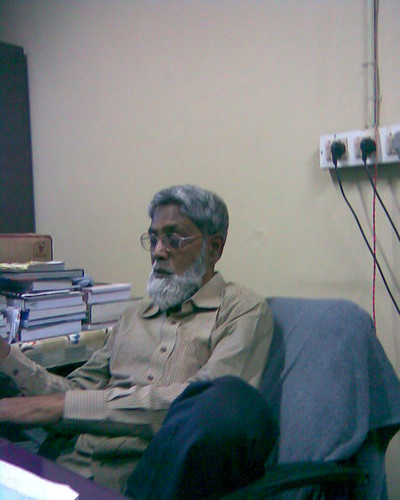
Dr.Prof.P.Nisar Ahmed
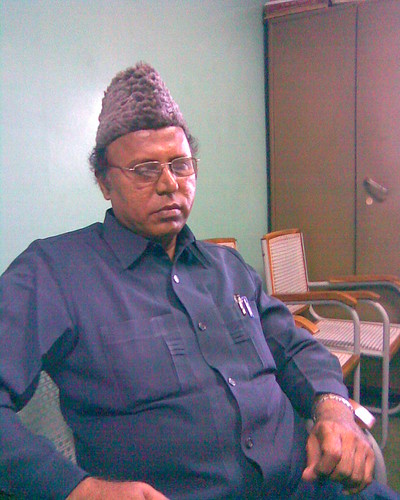
Prof.Dr.Sajjad Hussain
Since you are the brain and nerve system for the government as far as Urdu language is concerned and if you are given to understanding that Tamil Nadu Government introduces two-language formulae, are you at fix?
The two professors said: Government has conducted several seminars and we have attended them. They asked us our opinion and we have presented our papers to them.
The clarification given by Chief Minister Karunanidhi is totally contradictory to the expert opinion of others that after 2015 there will be no oriental languages taught in the Tamil Nadu curriculum.

